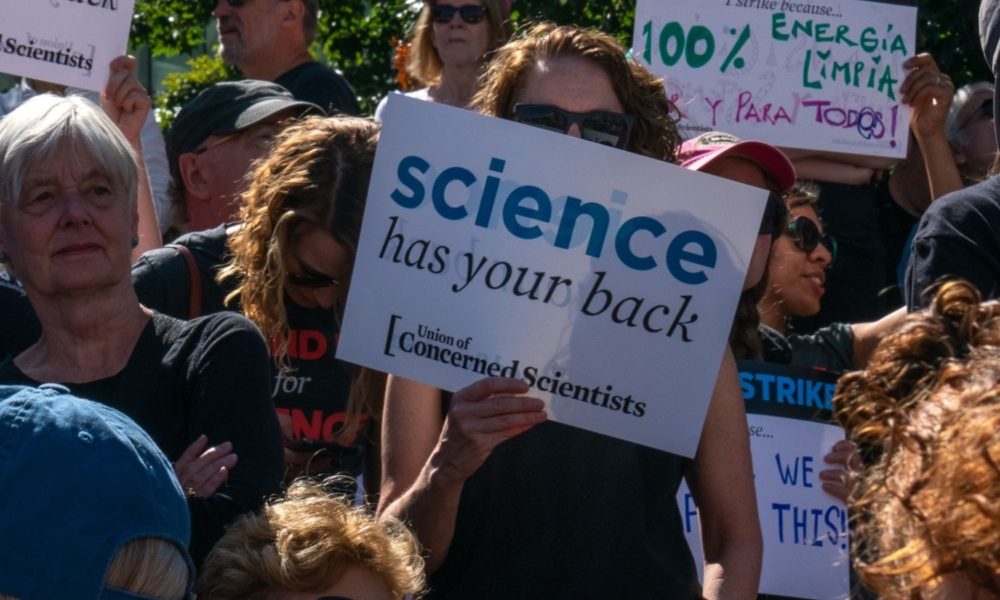Last week, Dr. Peter J. Hotez, Dean of the National School of Tropical Medicine at Baylor College of Medicine in Houston, wrote an op-ed in the Boston Globe entitled “Who will defend embattled scientists?” It is an important question, ever more urgent in the current political and media environment, in the midst of a pandemic, amid the crisis of climate change, intense struggles over racial injustice, threats to our constitutional democracy and ever widening gaps in wealth and well-being in America. It is especially important because science plays a major role in understanding these and other crises, and in crafting solutions to virtually all societal challenges.
Dr. Hotez is not only a highly respected scientist in his field and a leader in the biomedical community, he is also a frequent public spokesperson on issues concerning the pandemic. As he notes in his op-ed, attacks on science and scientists have gotten worse and worse during the pandemic for him and his colleagues. And those attacks, fueled by social media, aren’t just from shadowy corners of the Internet or disgruntled fringe actors. Those are bad enough. Today, attacks on scientists working to save lives and get us through this pandemic are coming from elected representatives and public figures: Gov. Ron DeSantis of Florida; Rep. Marjorie Taylor Greene of Georgia; Sen. Rand Paul of Kentucky; and many others.
Dr. Hotez notes that some of the attacks on him are overtly anti-Semitic. Dr. Fauci has been compared to Hitler. These scientists have been accused of “crimes against humanity” for their work to develop and encourage the use of life-saving vaccines and other protective measures. Many biomedical scientists have received a regular stream of threats, including death threats to themselves and their families, egged on by public figures, all because of their life-saving work.
A mounting problem
Climate scientists, perhaps you are saying “welcome to the club,” given that many of you have been targeted for years, as have many of those calling out dangerous pollution, racial injustice, and many other problems. As a natural resource scientist, I was subjected to threats on occasion. But never at this level, and never with the encouragement of elected officials or the multiplier effect of social media.
In response to Dr. Hotez’s question, I first ask, “how can this possibly be acceptable behavior in our society?” If you walk up to me on the street and threaten me, it could be considered assault. If you do it through the (snail) mail, it is a federal crime. So, how has this become a shoulder-shrugging norm that many scientists (and others, of course) are experiencing as part of daily life in America?
The Union of Concerned Scientists has, for over 50 years, called on scientists to speak out on critical issues, from the threat of nuclear weapons, to climate change, to fundamental rights in our democracy. We regularly ask scientists to be more engaged in public life, debate and public policy issues. And many, many scientists and those who care about the role of science in our society have responded by speaking out as citizens and scientists. Sharing their skills and work. Taking on new perspectives and issues. As an organization, we at UCS defend not only their right to do so, but the important role they can and must play in our society.
We have done far less work with the biomedical community, but maybe it’s time we did. Science has a lot to contribute to our society and many, many people look to and depend on biomedicine and biotechnology for life-saving innovations every day. So, we do need to stand up for our colleagues in biomedicine.
We can’t have a functioning democracy if we allow those who threaten, intimidate and censor science to win.
Raising our voices
In answer to Dr. Hotez’s question, “who will defend the scientists?” I say we will. And there are a lot of people with us. Defending the right to share life-saving work with the world is everyone’s job. And that means we all need to join the fight, not just those in our organization but all of us throughout the country. We have to hold the elected officials, political aspirants, public figures, loud voices, social media and other companies accountable. You can help at the ballot box, with your wallet, and by using your own voice.
We must all say loudly, and as often as possible, that to threaten and intimidate with violent speech is not “free speech,” it is a crime. It must be considered unacceptable and disqualifying for any public position.
We all must call on our universities and research institutions to stand up for their staff scientists when they are attacked. If you live in a university community, or are an alum, or perhaps involved in other ways, you can emphasize the importance for them of pushing back on violent rhetoric.
Elected officials also need to hear loud and clear that this kind of attack is way out of bounds. These officials don’t just represent one part of their constituencies. They represent all of us. Opinions may differ. But violent intimidation never has a place in democratic society–especially from those who claim to represent us. Those companies that tacitly or financially support this kind of behavior don’t deserve our business.
We rely on scientists like Dr. Peter Hotez to do a tremendously difficult, complex job that saves lives around the world. They should be able to rely on us to have their backs.

